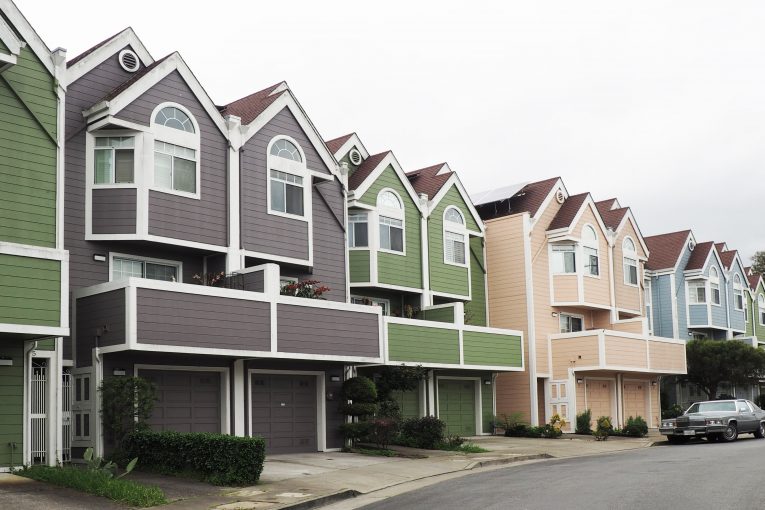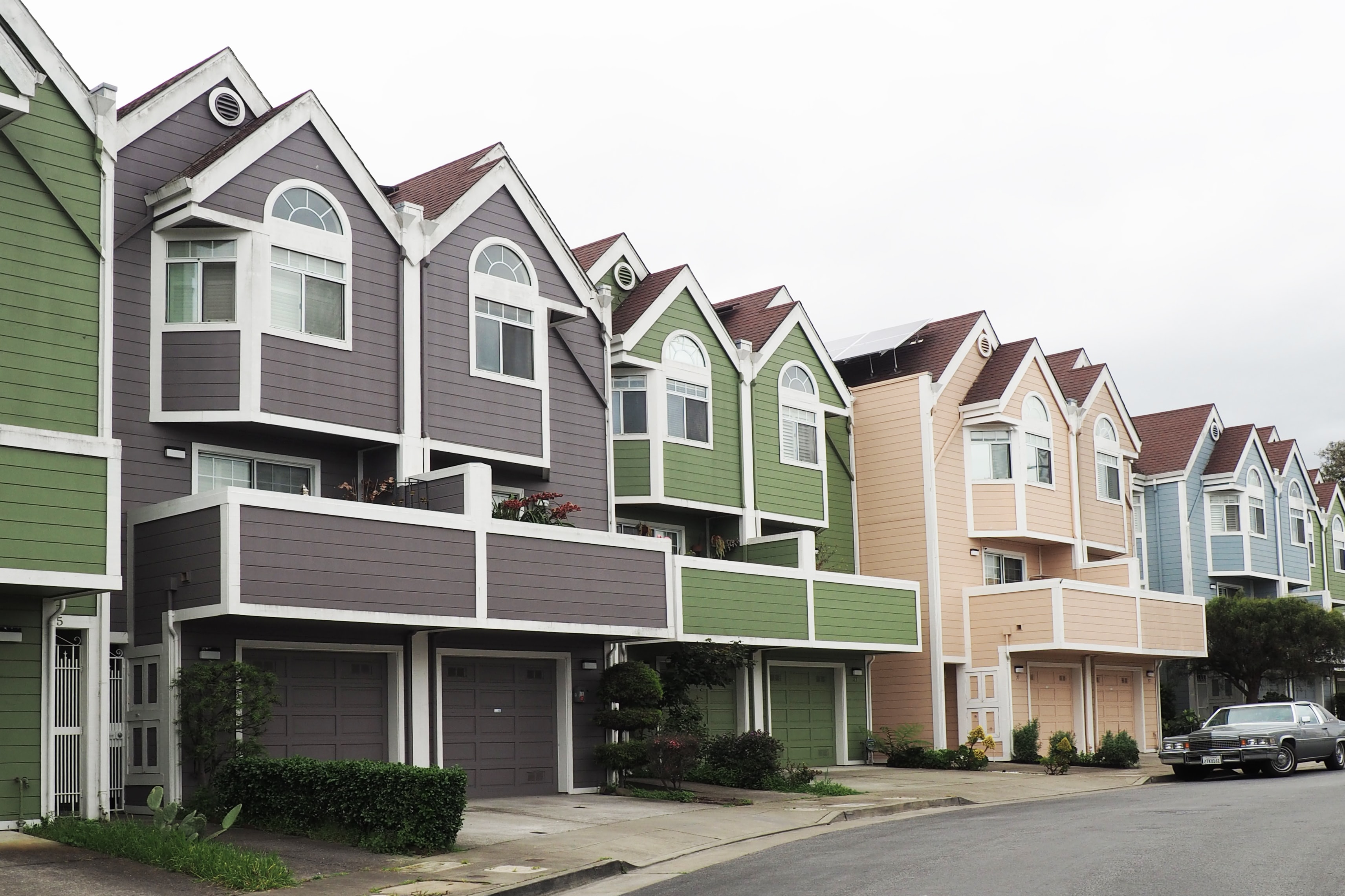

By David M. Greenwald
Executive Editor
How do people who are opposed to the various housing reforms plan to solve the housing crisis in California? Or do they? Or do they even believe there is one?
That’s what I came away with after reading the latest Tom Elias column in the local paper this week. Truth be told I try to avoid Elias – and I was again reminded why when I read his column on housing – but I was drawn in by the topic and headline.
The headline: “AG spurs on housing battle for 2022.”
I got to read remarkable lines like: “But Bonta, a former ultra-liberal assemblyman from the East Bay suburbs of San Francisco named attorney general when President Biden picked Xavier Becerra to be his secretary of Health and Human Services, has assured that housing will vie to be the year’s No. 1 issue.”
Leaving aside the “ultra-liberal” quip (who talks like that in 2021?) – the notion that somehow Bonta “has assured that housing will vie to be the year’s No. 1 issue” is patently absurd. With or without Bonta, who primarily will be focused on the other top issue, housing figured to top the list along with crime.
Elias goes into a diatribe against Sb 9 and SB 10 which he says, “together could virtually eliminate single-family neighborhoods all over this state.”
He continues, “Those pre-existing laws, via guidelines from the Department of Housing and Community Development, have already forced many cities to plan vast new developments that could produce as many as a million new housing units. Relatively few of those units have been built, for lack of well-financed developers and the fact that buyers for new homes can be hard to find.”
Meantime, he notes that several groups have emerged, “determined to preserve single-family neighborhoods that embody the longstanding “California Dream” of owning private open space and greenery.”
Writes, Elias, “Their initiative runs completely counter to what Bonta and his longtime ally, Democratic state Sen. Scott Wiener of San Francisco, are trying to do, which is essentially to remake California cities into dense New York-ish anthills of high-rises and brownstone-style duplexes.”
The proposed law that Elias crows about, he says, “would remove from the state all the powers Bonta, Wiener and allies like Oakland-based YIMBY (Yes in My Back Yard) want to exert over local land use.”
Says the proposed law, “The purpose of this measure is to ensure that all decisions regarding local land use controls, including zoning law and regulations, are made by the affected communities…”
He writes, “In short, this proposed state constitutional amendment would make it impossible for the state Legislature ever again to try reshaping the state by seizing powers traditionally held by local governments.”
“Expect that to pass in 2022,” Elias writes. “It’s an extreme solution to a problem foisted on neighborhoods by highly ideological lawmakers like Wiener. Given the way today’s legislators often won’t accept the voters’ will, something that strong may be needed.”
I don’t quite agree that there is the money or the impetus at this point to support this kind of measure. Polling out of Los Angeles suggests that voters may actually support the concept behind SB 9 and SB 10.
Moreover, the analysis I have seen is that they will have only a very marginal impact over existing neighborhoods.
All that aside, for the last twenty years or so we have left land use decisions up to local communities. The barriers that they have erected to new housing have driven up housing costs and driven the housing crisis.
If you foreclose a statewide solution to housing – what do we have left to do? Attempting to do the same thing as before and expecting different outcomes is lunacy.
Which leads me to believe that the people opposing these laws who offer no alternative solution really do not want to solve the housing crisis and in many cases, probably believe that there is none.







“There is no housing crisis”
Problem solved.
Alan M
In a response last week, I showed that population growth in California is outpacing housing additions by at least 9% a year. There’s other statistics showing that the % of households able to afford housing is shrinking. (And markets alone do not solve all problems based on my many years of economics education and consulting.) This is a crisis, just as the pandemic, climate change, species extinction and health care delivery are all crises that we are reluctant to address.
Homey don’t think so.
That is, not only is that not true – but that you (also) didn’t post the not-true claim. A double-negative, as it were.
For the most part; communities should approve housing that suits the wants and needs of their communities. People should live where they can afford to live. Why should it be any different than it’s always been?
As for affordable housing; some rational calculation can be agreed upon. For example in a previous set of comments it was discussed about how many workers with retail and food service jobs in a community become relatively long term residence (say…5+ years?). Say it’s 10% of that group of workers. So if that group of workers is 10,000 people then 1,000 affordable bedrooms (so….700 total one and two bedroom units?) should be added as a component to the total number of affordable housing units in a community. I guess you could attempt to survey the total number of below median rate paying jobs and try to run a similar calculation. Obviously there would be other considerations to account for in the total number of affordable units needed in a community. But bottom line, I think as much as possible affordable units should be for current members of the community and I’m against forcing communities to grow.
I can understand people’s opposition to SB9. It does seem disruptive. But in all honesty, I think it’s overblown as the neighborhoods that will be effected most will be those where there is value in knocking down and existing structure (and the bill is restrictive on doing that) and putting up new units (poor neighborhoods). IMO the bill will be felt mostly in more borderline rural areas (more open land) and new developments….both situations where there is open land and no existing units (again the bill is pretty restrictive on knocking down existing units…especially when there are existing renters…you gotta wait like 3 years I think….so you have to kick out the renters and then wait 3 years without rental income before starting on the new units).
SB10 should be no big deal in concept. It simply streamlines the process for approval for affordable housing projects THAT CURRENTLY MEET THE EXISTING GENERAL PLAN CRITERIA. So it’s not like it changes anything major that a city already hasn’t planned for. Yes, it’ll upset the the YIMBYs who don’t want affordable housing built near them. But honestly, I think cities and affordable housing developers need to do a better job of marketing their projects. Put a friendly face on their projects. Showcase the good people that live in your projects…etc….
The overwhelming majority of my employees were already long term residents when I hired them.
I was pulling numbers out of the air just for an example. The numbers are whatever they come out to be….the importance is the rational behind the calculations. I think Matt Williams has actual numbers.
Because for the most part jobs are created where businesses agglomerate with similar businesses for a variety of reasons. So if people want to work in the better paying jobs, they usually have to live close to those businesses. Businesses that pay the best generally do not simply locate to where people live unless that population has a concentration workers with the skills they want, such as a college town. This is why allowing local communities to pull up the drawbridge at the moat is a bad idea for society in general. I already posted a long article with a broader critique of local control within the last month on this site. (But there’s not a good way to find previous comments on a specific topic here.)
I essentially worked on Sand Hill Road for almost two years about 20 years ago. So…uh…your comment is amusing.
If it is of no advantage for Davis to build more market rate houses and businesses still want to move here, then let the workers live in Woodland. That’s the best solution from a city’s fiscal standpoint. If it is determined that housing is a crucial issue for attracting new businesses to Davis; then the city has to figure out if it’s worth the added cost of servicing more housing. That can be discovered by directly engaging companies that seek to move into an area or region. That’s what good business development by a city is for.
https://www.sfgate.com/places/article/bay-area-exodus-to-nashville-tennessee-16698224.php
https://www.marinij.com/author/dick-spotswood/
Amen – especially the last sentence above.
Ron,
By having firms relocate their operations to other states, Californians lose out in many ways. First, the jobs directly generated by the firm are no longer available to California residents which reduces their choices and prospects. Second, the jobs that are generated due to the economic activity of the firm are also no longer available to California residents which similarly reduces their choice set and prospects. With fewer jobs available, this tends to reduce the wages and benefits received by the remaining employed Californians since firms do not face as much competition for the labor pool.
Less wealth is created and distributed within California when California loses firms. This means that individual Californians, Californian cities, counties, the state government, charities, non-profits, and other entities have fewer resources to pursue their goals. This restricts human development and material living standards. Impoverishment is not compatible with human flourishing.
Fewer resources mean fewer needs can be met or addressed. This does not seem like a dynamic to be celebrated. I suppose that if communities choose to impoverish themselves by obstructing economic development that it would place less pressure on the housing market. Detroit is a good example here, but I am not sure why you feel that this is something to be celebrated. Why not just allow more housing to be built and allow more people to flourish?
If the population simultaneously increases, there are NOT more choices and prospects. It’s a “wash”. (On top of that, history shows that the new jobs are not generally filled by existing residents.)
So nice, you said it twice! 🙂
Again, when you (also) add more people (workers), it’s a wash.
Again, when it’s distributed to more people, it’s a wash.
Again, when there’s more people, it’s a wash – as the need for those services also increases.
See responses above.
See responses above.
A conclusion not supported by anything I said. I (and others) have noted, however – that if you add jobs in an area with limited housing, you get rising prices and increasing inequity. How does that help?
Detroit declined, which is different than “not growing”. In any case, how about putting a DiSC or two, there? For that matter, West Sacramento could probably accommodate about 10 of them, within its own footprint.
Again, a wash. Existing populations don’t need more housing or jobs. If you want to grow for the sake of growth, that’s a different issue (and has been the status quo for a long time). It seems to me that this model is starting to collapse under its own Ponzi-scheme wake.
It’s not a wash. Well managed growth benefits the existing population. The key of course is “well managed”.
First, we’d have to define “benefits” (as well as “drawbacks”). That’s a very wide category.
And then define whether or not those are “personal” benefits (or drawbacks).
Certainly, the fiscal benefits haven’t outweighed fiscal costs (throughout California).
I’d say that most existing residents (who don’t have a direct, personal financial stake in the pursuit of more development) view it in a negative manner, based upon reality and their own experience. Especially in geographic areas in which the negatives have become more obvious.
But the problem is that representatives generally don’t survive the election process, without the support of those who DO have a direct stake in that pursuit. The latter are the ones who cut the checks for political campaigns.
In fact, those who might question this arrangement don’t even bother running for elected office in the first place, as a result. They already know it’s essentially rigged. (And that Democrats are just as culpable as Republicans regarding this system and what they support.)
Yes, but let’s consider; life style, fiscal and cultural.
Let’s look at fiscal. Davis is currently running a deficit. The only way to fix that other than revenue growth is to cut items from the budget. I would consider that a reduction in life style.
That’s a sweeping generalization that isn’t completely true. Which is also why I specifically said “well managed” growth.
Everything is a sell job. Elected officials are supposed to be leaders. They (and developers) have to convince the existing residents that the benefits of growth out weight the disadvantages. Economic growth = better parks, more community services, better police, better roads…etc… If the leaders can’t sell it to the public then they aren’t good leaders or their economic growth solutions weren’t good ones. But simply plastering growth = bad is irrational.
Davis has been relying upon the same Ponzi scheme that every other city (which are also running deficits) have tried. The hole just keeps getting deeper, this way.
I do have a “solution” though – which is apparently exactly what’s being proposed. Just claim that every new resident only adds 75% of the cost that everyone else adds.
And if that doesn’t “pencil out”, try 60%.
We’ll get there, eventually.
[Moderator: this is your fifth and final comment on this thread for today.]
Musk is exercising tens of billions worth of stock options. Billions will be paid in taxes to the State of California. Arguing that him leaving this state is a good thing is about the dumbest thing I can think of.
Housing opponents don’t need to offer solutions. They are already living in houses. AS Maurice Chevalier once sang “Why should I care, Why should I let it bother me?”
I don’t believe it’s “billions”, as it is (up to) 12.3% of the billions that he is (personally) making (by exercising options to buy stock at $6.24/share, and immediately selling them for more than $1,000/share. He is forced to do so now because those options are expiring. (The sales price varies.)
It seems to me that this is the type of thing that liberals “used to” be against.
In any case, it’s more of an argument for California to either eliminate its state income tax (to compete with Texas – which has none), or for Texas to implement such a tax.
Or, an argument against the system we have which creates such disproportionate wealth and power. It is not unlike the days of the railroad barons.
Of course, he might have chosen Texas for other reasons as well, such as the ability to pay his own workers less (partly because they ALSO don’t have to pay sales tax), fewer regulations (such as Covid shutdowns), and yes – cheaper housing for his employees.
https://www.marketwatch.com/story/elon-musk-exercises-more-options-sells-another-1-billion-of-tesla-stock-11638504032
Liberals also used to be concerned about the following type of issues, as well. The first example appears to show how politicians at the highest level can be corrupted by wealthy business interests such as Tesla:
https://www.theverge.com/2020/11/20/21587781/tesla-workers-california-fremont-exempt-new-covid-19-order-newsom
I also found this one, while searching for the Covid-related controversy:
https://www.nytimes.com/2021/10/04/business/tesla-racism-lawsuit.html
No one (who isn’t associated with that company) will even notice any impact from his move to Texas. But I do believe it is both inevitable and beneficial for these type of companies to expand their horizons beyond the Bay Area. Those in the Bay Area (who have nothing to do with technology companies) are likely to increasingly say “good riddance”. (I’ve witnessed this, anecdotally – but I suspect that the feeling runs much deeper and wider than most realize.)
For that matter, those employees leaving “with” those companies seem pretty happy about the move, as well. Lots of articles regarding that.
I suspect that anyone reading this would not come out on top (vs. Elon Musk, or many of his officers/employees) in a bidding war for housing.
Correction – no state “income” tax in Texas. At one point above, I mistakenly used the wrong term.
In any case, I’ll go ahead and add a reference to this article, for anyone who calls themselves a liberal or progressive (while bemoaning Musk’s departure):
https://www.theguardian.com/technology/2021/dec/08/elon-musk-slams-build-back-better-electric-car-incentive
Perhaps liberals/progressives might want to “re-think” their recent full-on embrace of capitalism.
Doubling down on dumb.
I can’t remember when liberals were against rich people paying billions in taxes.
And that’s why Elon Musk is now in Texas. Though again, I don’t think it’s billions (to California, at least).
I have no doubt that the California state tax board will follow him to Mars, if necessary.
But you’d think that those who advocate for high taxes would be delighted regarding high property values, assuming that those properties are turning over. If you buy a house in the Bay Area, you’re going to be paying some enormous property tax bills.
I wonder when they’ll go after commercial properties, again (in regard to Proposition 13).
“Though again, I don’t think it’s billions (to California, at least).”
His California tax bill on the sale of stock options of $20 billion earned while a California resident will be over $2 Billion. His California marginal tax rate is 12.3%, times the percentage of time he was a California resident, from when the options were granted until he exercised them.
By the way, here’s some good news for the housing crisis people:
And according to the chart, California’s population decreased by .7% last year.
https://www.census.gov/library/stories/2021/12/us-population-grew-in-2021-slowest-rate-since-founding-of-the-nation.html
https://www.sacog.org/post/sacramento-region-grows-while-state-loses-population-overall
The Sacramento region encourages this. It’s a choice that’s made by representatives.
Cool – that’s what caused folks to “move on” from the Bay Area. And they’ll increasingly move-on from Sacramento, as well.
Though truth be told, affordability is becoming an issue throughout the country. I was watching a YouTube news report from Nashville, where an empty lot had a price of $400,000. (It looked to be in a suburban area.)
What we need is a good old-fashioned housing crash. And, I wouldn’t be surprised if we get one, soon.
But “affordability” is not the same thing as inadequate supply. The Sacramento region is an area where developers call the shots in the first place, and they’ll continue sprawling outward as long as they can make money at it.
And given that those moving in have more money than those who are from the region, we already know who wins and loses. Again, it’s that way across the country these days, as well.
If you’re poor (compared to others moving into a given area), you’re going to get pushed out – unless you already own (or enjoy rent control).
Again, probably half the people in Davis (and the area) got somewhat “pushed out” of their original hometowns (myself included). And that was before housing prices went crazy.
Tried to find that news report from Nashville, but happened upon this. Maybe the buyer can stay in the garage/shed, while they rebuild the house:
https://eminetra.com/hot-housing-market-burned-home-listed-for-almost-400000-nashville-davidson-tennessee/766084/
Looks kind of hilly/nice there, though. I sometimes view the entire middle section of the country as something similar to the Sacramento/central valley (in error, apparently).